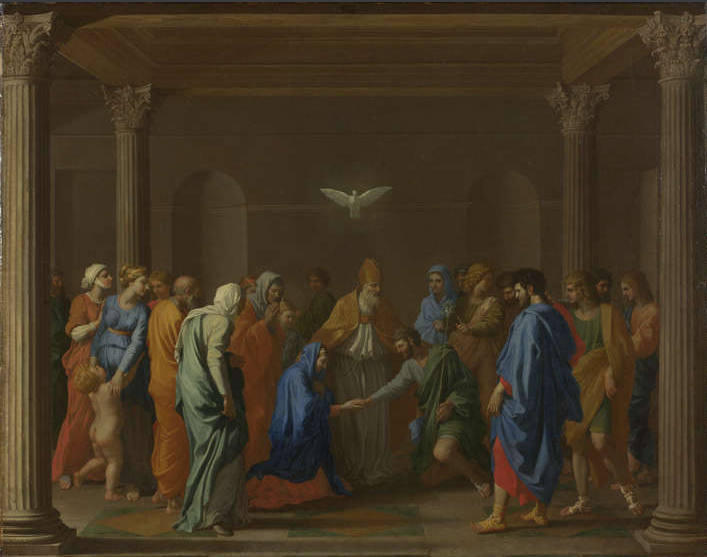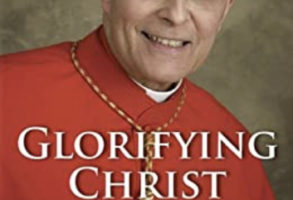
Published February 9, 2023
The universal call to holiness is just that; universal. Each one of us is called to holiness because each one of us is loved by God, who wants us to be happy. As St. Augustine put it, “You have made us for Yourself, and our hearts are restless until they rest in You.”
The universal call to holiness takes different forms in each of our particular lives. Some are called to holiness by way of the ministerial priesthood, some are called to be holy through marriage, some through religious life, and so on. Moreover, each particular vocation is not only a personal call from God to follow Him along the path that will lead us to holiness and happiness. Each vocation has a communal or ecclesial dimension as well.
The vocation to marriage serves the sanctification of the spouses, but also the good of their children, the community, and so on. A priest’s vocation is both for his own sanctification and that of his parishioners. The point is that our particular vocations are ordered both to our own personal good and to the common good.
And for as long as men and women have been on this earth, we have been trying to disrupt that ordering. We look high and low for sources of happiness apart from God. We look for paths to happiness apart from the ones He shows us. We believe the lie – and sometimes we spread it ourselves – that between happiness and holiness there must be a choice. And this lie, to borrow a line from all mothers everywhere, is why we can’t have nice things.
During the prayers of the faithful, one often hears prayers for “an increase in vocations,” a formulation that has often struck me as somewhat amusing. It is as if God had forgotten to place the requisite orders for vocations and was falling behind his quota. Of course we should pray for faithful and courageous responses to God’s call. But I’m quite confident the calls are being made; it’s the response rate that leaves something to be desired
It makes sense to give special attention and care to cultivate vocations to the priesthood. A priestly vocation requires a unique sort of preparation and formation. Still, it is hard not to wonder if the Church today, in emphasizing priestly vocations, doesn’t unintentionally diminish the need to nurture real discernment and preparation for the vocation shared by most Catholics, namely marriage.
Vocational discernment is no less important to the vocation of marriage than it is to the priesthood, and not just when it comes to picking the right person to marry. In my own case, I am utterly convinced that I was better prepared for my own vocation as a father and a husband because I spent a lot of time as a young man considering whether or not God wanted me to be a priest. And I’m better able to understand how my vocation both depends on, and supports, other vocations because of this.
The vocation to marriage is in a sorry state in this country. Young people today are marrying later, if at all. When they do marry, they marry less and less frequently in the Church. There are a million reasons, some good, some less so, for young people to postpone marriage. Unlike the process of discernment and formation for the priesthood, however, discernment and formation for marriage and family life mostly take place in the home. Increasingly, the home is not a reliable house of formation.
Even among young Catholics who understand the importance of vocational discernment, I have encountered many who seem to see their particular vocation – especially, but not only, in the case of marriage – as a destination rather than a beginning. But a wedding is not the fulfillment of a vocation to marriage any more than ordination is the purpose of a priestly vocation. Marriage and ordination – these are not the mountain top; they are vocational basecamp. Matrimony and Holy Orders – these are fonts of grace to see us through to our destination and to bring as many others with us as we can.
The Church – and here I include all the faithful – ought to be doing everything we can to encourage and assist each other in discerning God’s call. How many young people enter adulthood without ever giving serious, prayerful consideration to what God is asking of them? How many have no one to guide them through such a discernment? Vocational discernment is often treated as a means for increasing or facilitating priestly vocation, which is fine so far as it goes. But authentic discernment is a vital part of every Christian life and inseparable from the work of discipleship.
Of course, that is easier said than done, as anyone who has struggled through vocational discernment will tell you. Discernment is not all joy and roses. Holiness is the only sure way to happiness, but it’s certainly not a detour around suffering. All true vocations, sooner or later, tend to lead up the same Hill.
The particular vocations of Christians within the Church are so interdependent, it makes little sense to try and address a crisis or collapse in one while ignoring the others. Priestly vocations are deeply dependent on families built on strong and holy marriages. Married life and family life are dependent upon the sacraments and ministries that only priests can provide. Both priests and lay people are supported by the prayers and witness of religious and contemplatives.
It’s time to stop thinking about a crisis of priestly vocations as if it was separable from the crisis in Christian marriage and family or from the post-Conciliar collapse in religious vocations from which the Church, at least in the West, still has not recovered. In the body of Christ, when one part suffers, all suffer with it.
Stephen P. White is a fellow in the Catholic Studies Program at the Ethics and Public Policy Center. Mr. White’s work focuses on the application of Catholic social teaching to a broad spectrum of contemporary political and cultural issues. He is the author of Red, White, Blue, and Catholic (Liguori Publications, 2016).











